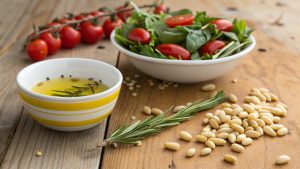In today’s health-conscious world, antioxidants have emerged as a beacon of hope for those seeking improved well-being.
These powerful compounds, found in abundance in fruits, vegetables, nuts, and grains, play a crucial role in protecting our bodies from oxidative stress caused by free radicals.
Let’s delve into the world of antioxidants and discover how they can contribute to a healthier and more vibrant life.
What are Antioxidants?
Antioxidants are substances that neutralize harmful free radicals, unstable molecules that can damage cells and contribute to chronic diseases. By protecting our cells, antioxidants help prevent the development of conditions such as heart disease, diabetes, and cancer. While our bodies produce some antioxidants naturally, a significant portion comes from the foods we consume.
Dietary Sources of Antioxidants
A variety of foods are packed with antioxidants, making it easy to incorporate them into your daily diet. Some of the most notable sources include:
- Fruits: Berries (blueberries, strawberries, raspberries), citrus fruits (oranges, grapefruit), cherries
- Vegetables: Spinach, kale, broccoli, carrots, tomatoes, artichokes
- Nuts and Seeds: Almonds, walnuts, sunflower seeds, pumpkin seeds
- Whole Grains: Brown rice, quinoa, oats
- Dark Chocolate: Opt for options with a high cocoa content
- Spices: Turmeric, ginger
- Beverages: Green tea, coffee
The Colorful Power of Antioxidants
The vibrant colors of fruits and vegetables often indicate the presence of different antioxidants. For example, the red in tomatoes is due to lycopene, while the green in spinach is attributed to lutein. By consuming a diverse range of colorful foods, you can ensure a comprehensive intake of antioxidants.
Lifestyle Factors for Optimal Antioxidant Benefits
In addition to diet, lifestyle factors play a significant role in maximizing the benefits of antioxidants. Consider the following:
- Regular Exercise: Physical activity helps reduce oxidative stress and enhances the body’s natural antioxidant defenses.
- Stress Management: Chronic stress can increase oxidative damage. Practice relaxation techniques like meditation or yoga to manage stress.
- Adequate Sleep: Quality sleep is essential for overall health and helps regulate antioxidant levels.
- Environmental Factors: Minimize exposure to environmental pollutants and toxins, as they can contribute to oxidative stress.
The Role of Supplements
While antioxidant supplements are available, it’s generally recommended to prioritize whole food sources. The synergy of nutrients found in natural foods often provides more comprehensive benefits than isolated supplements.
However, if you have specific dietary needs or concerns, consult with a healthcare professional to discuss supplementation options.
Antioxidants are essential for protecting our health and combating the effects of oxidative stress. By incorporating antioxidant-rich foods into your diet and adopting a healthy lifestyle, you can significantly reduce your risk of chronic diseases and enjoy a higher quality of life.
Remember, “You are what you eat,” so make mindful choices to nourish your body and support your overall well-being.



